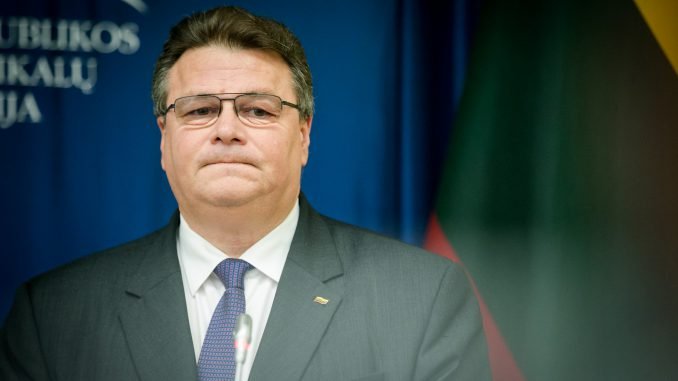
The minister commented on Germany‘s proposal for the EU to sign an economic agreement with Russia on investment and energy cooperation. Mr. Linkevičius said: “This is a traditional intention. <…> There are arguments that if we are compliant, if we show good will, then the other side [Russia] will start doing so as well. Unfortunately, the opposite has been proven to be the case a number of times. Good will or flexibility on our side are taken as signs of weakness and an offensive operation is started almost immediately. Not in the physical sense, but propaganda and political initiatives are launched. That has happened many times before.”
Germany has also proposed to revive the dialogue between NATO and Russia in the form of the NATO-Russia Council. Mr. Linkevičius commented that the Council has been meeting on the ambassadorial level all along. The minister said that “there must be a point about the situation in Ukraine in the NATO–Russia agenda. If Russia is prepared to come to us with such an agenda and explain what is happening in Ukraine, then I do not see anything wrong with it.”
Minister Linkevičius reiterated his conviction that the European Union should send a message of support to Ukraine in the form of visa-free travel. “There are different views on that,” Linkevičius said in reference to divided opinions within the EU. “Some views are more cautious, although to me such views seem irresponsible. We should finally grasp that we could show more support to a country that is standing alone in the face of aggression, against a force incomparably stronger than itself, well-armed, a power with regular supply of reinforcements – all the while it has also to implement reforms and weed out corruption.”

Be the first to comment